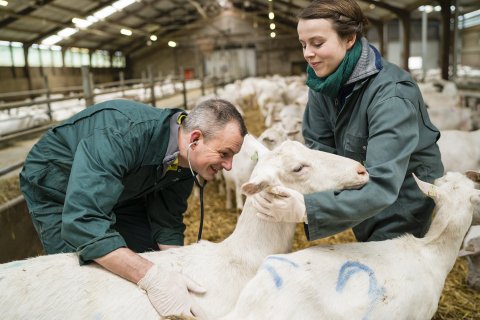One Health

There are 88 countries with a population of more than 10 million. Of those, The Netherlands is the 5th smallest in land mass, ranks 4th in highest in density population, and is the world’s 2nd greatest exporter of food and agricultural products. Integrating environment and human and animal health under the One Health programme is a top priority.
Integrated approach
Many microbes infect both humans and animals and share the same ecosystems, creating a circular transfer of disease-causing agents. Well-known outbreaks, such as Ebola, influenza (flu), and Zika virus are examples of how closely interconnected we are with our environment. One Health emphasises the connections between these sectors, and calls for a sustained, integrated approach in order to improve health conditions and health care across the globe.
We're connecting humans, animals and the environment
Given the intimate relationship between animal and human health and the environment, the joint research programmes of the Faculty of Veterinary Medicine, the Faculty of Science and UMC Utrecht constitute a unique centre of excellence for One Health. In collaboration with our public and private partners, we focus on the prevention of and fight against existing and emerging infectious diseases – both in humans and animals – including zoonoses and food safety pathogens, on the prevention and control of antimicrobial resistance and on overcoming environmental risks.
National alliance
The Netherlands Centre for One Health (NCOH) is a national alliance initiated by Utrecht University and launched in 2016. Within the NCOH we aim to find solutions to Global One Health Challenges, such as outbreaks of emerging infectious diseases and antimicrobial resistance. As the causes and possible solutions also include components of healthy farming and healthy wildlife and ecosystems, a One Health approach is required to solve these major societal challenges.



